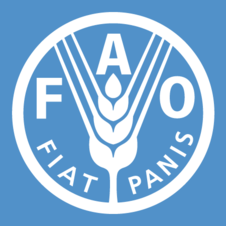INTERACCIONES ALIMENTOS-MEDICAMENTOS EN LA TERCERA EDAD
Resumen
La farmacocinética de los medicamentos puede alterarse por cambios corporales relacionados con la edad. Los alimentos, la dieta o el estado nutricional pueden condicionar la respuesta terapéutica y tóxica a un tratamiento farmacológico. Así mismo los fármacos pueden alterar el proceso de nutrición. Los nutrimentos son absorbidos, metabolizados y excretados por el cuerpo, los fármacos pueden afectar la utilización de nutrimentos en cualquiera de estas etapas y de muy diversas maneras. Las alteraciones gastrointestinales son el efecto secundario más reportado por el consumo de fármacos (alteraciones del apetito, gusto y peso corporal). Aunque el efecto de los alimentos sobre los medicamentos no ha sido bien estudiado, los científicos van adquiriendo conocimientos acerca del impacto de los alimentos sobre la absorción y metabolismo de fármacos. Debido a que los alimentos y los medicamentos administrados oralmente generalmente se toman juntos, su potencial interacción debería ser tomada en cuenta. Los pacientes con mayor riesgo de experimentar consecuencias adversas son los ancianos y los enfermos crónicos por lo que sería recomendable conocer mejor estas interacciones.
Abstract
The pharmacokinetics of drugs can be altered by physical changes related to age. Food, diet or nutritional status may condition the response to therapeutic and toxic drug therapy. Also drugs can alter the process of nutrition. The nutrients are absorbed, metabolized and excreted by the body, drugs can affect nutrient utilization in any of these stages and in many ways. Gastrointestinal disturbances are the most commonly reported side effect from the consumption of drugs (changes in appetite, taste and body weight). Although the effect of food on drugs has not been well studied, scientists are gaining knowledge about the impact of food on drug absorption and metabolism. Because food and orally administered medications are usually taken together, their potential interaction should be taken into account. Patients at greatest risk of experiencing adverse consequences are the elderly and the chronically ill and it would be advisable to better understand these interactions.
Palabras claves: Medicamento; Nutriente; Alimentos; Dieta
Descargas
Citas
Cardona, D. 1999. Interacción Fármacos-alimentos. Nutrición Hospitalaria. 14(2): S129-S140.
Montoro, J.B. y A. Salgado 1999. Interacciones fármacos alimentos. Editorial Novartis-Rubes pp. 135-154.
Hay, K., J. Smiciklas-Wright and J.Treu 2001. Nutrition and aging: Drug-Nutrient Interactions. Penn State Nutrition & Extension Partnership Project. Editorial The Pennsylvania State University. pp. 1-9.
D'arcy, P.F. 1995 Nutrient-drug interactions. Adverse Drug React. Toxicol. Rev. 14, 233-254.
Thomas, J.A. 1995. Drug-nutrient interactions. Nutrition Reviews. 53: 271-282.
Sacks, G. and R.O. Brown 1994. Drug Nutrient Interactions in Patients Receiving Nutritional Support. Drug Therapy March, 35-42.
Roe, D.A. 1994. Medications and nutrtition in the elderly. Primary Care. 21:135-147.
Randle N.W. 1987. Food or Nutrient Effects on Drug Absorption: A review. Hosp. Pharm. 718, 694-697
Bressler, R. 1993. Adverse drug reactions. In Handbook of pharmacology [J. Roberts, D. L. Snyder and E. Friedman] Ed. McGraw Hill Inc. pp.41-61.
Roe, D.A. 1987. Geriatric Nutrition. Editorial Prentice-Hall Inc. 267 pp.
Eddington, N.D. 1996. Pharmacokinetics. In Handbook of pharmacology.of aging [J. Roberts, D. L. Snyder and E. Friedman] Ed. CRC Press Inc., Cap. 1: 1-22.
Bressler, R., Op. cit.
Blumberg, J. and R. Couris 1999. Pharmacology, Nutrtition and the Elderly: Interactions and Implications. In Geriatric Nutrition: The health professionals Handbook [R. Chernoff] Ed. Gaithersburg: Aspen Publishers Inc., pp. 342-365.
Bressler, R., Op. cit.
Eddington, N.D., Op. cit.
Idem.
Bressler, R., Op. cit.
Roe, D.A., Op. cit.
Bressler, R., Op. cit.
Blumberg, J. and R.Couris, Op. cit.
Roberts, J., and D. Snyder 1997. Geriatric Pharmacology. Aging (Milano). 9:443-445.
Roe, D.A., Op. cit.
Blumberg, J. and R.Couris, Op. cit.
Cook M.C.and Taren D.L. 1990. Nutritional implications of medication use and misuse in elderly. JFMA 77, 606-613.
Roe, D.A., Op. cit.
Anderson, J., and H. Hart 1998. Nutrient Drug Interactions and Food. Health, Food and Nutrition Series, Colorado State University. No. 9:361
Bateman D.N. 1991. Gastrointestinal disorders. In Textbook of Adverse Drug Reactions, 4th edn. ed. D. M. Davies, Oxford: Oxford Medical Publications pp. 230-244.
Ferguson, J.M., and J. P. Feighner 1987. Floxetine-induced weight loss inover weight non depressed humans. International Journal of Obesity, 11:163-170.
Blumberg, J. and R.Couris, Op. cit.
British Medical Association and the Royal Pharmaceutical Society of Great Britain. 1997. British National Formulary Number 34 (September). London.
Roe, D.A., Op. cit.
Blumberg, J. and R.Couris, Op. cit.
Idem.
Mitchell, S. 2001. The association between antiulcer medication and initiation of cobalamin replacement in older persons. J Clin Epidemiol., 54: 531-534.
Idem.
Tomkin G.H., D.R.Hadden, J.A.Weaver, and D.A.D.Montgomery 1971. Vitamin B12 status in patients on long term metformin therapy. Br. Med. J. 2, 685-687.
Adam J.F., J.S.Clark, J.T. Ireland, C.M. Kesson, and W.S. Watson 1983. Malabsorption of vitamin B12 and intrinsic factor secretion during biguanide therapy. Diabetologia 24, 16-18.
Blumberg, J. and R.Couris, Op. cit.
Pronsky, Z. 2004. Food Medication Interactions. Powers and Moore’s Food Medications Interactions. 13Th Ed . F M I, Pottstonwn
Anderson, J. and H. Hart, Op. cit.
Williams K.J., R.P Bax, H.Brown and S.J.Mackin 1991. Antibiotic treatment and associated prolonged prothrombin time. J. Clin. Pathol. 44, 738.
Hay, K., et al, Op. cit
Idem.
Idem.
Bennett, W.M. 1997. Drug Interactions and consequences of sodium restriction. Am J Clin Nutr., 65: S678S681.
Whelton, PK. and A.J Watson 1986. Diuretic-induced hypokalemia and cardiac arrhytmias. Am J Cardiol. 58: A5-A10.
Perazella, MA. and R.L. Mahnensmith 1997. Hyperkalemia in the elderly; drugs exacerbate impaired potassium homeostasis. J Gen Int Med., 12: 646-656.
Blumberg, J. and R. Couris, Op. cit.
Idem.
Hay, K., et al, Op. cit
Kirk, J.K. 1995. Significant drug-nutrient interactions. American Family Physician, 51: 1175-1185.
Thomas, J.A., Op. cit.
Kirk, J.K., Op. cit.
Idem.
Kane, GC. and J.J. Lipsky 2000. Drug-grapefruit juice interactions. Mayo Clinic Proceedings, 75: 933-942.
Dresser, GK., D.G. Bailey and S.G. Carruthers. 2000. Grapefruit juice-felodipine interaction in the elderly. Clinical Pharmacology and Therapeutics, 68: 28-34..
Roe, D.A., Op. cit.
Roberts, J. and Snyder D., Op. cit
Cook M.C. and D.L. Taren, Op. cit.
Bateman D.N., Op. cit.
Mitchell, S. 2001. The association between antiulcer medication and initiation of cobalamin replacement in older persons. J Clin Epidemiol., 54: 531-534.
Descargas
Publicado
Cómo citar
Número
Sección
Licencia
Los derechos del trabajo pertenecen al autor o autores, sin embargo, al enviarlo a publicación en la Revista Salud Pública y Nutrición de la Facultad de Salud Pública y Nutrición de la Universidad Autónoma de Nuevo León, le otorgan el derecho para su primera publicación en medio electrónico, y posiblemente, en medio impreso a la Revista Salud Pública y Nutrición. La licencia que se utiliza es la de atribución de Creative Commons , que permite a terceros utilizar lo publicado siempre que se mencione la autoría del trabajo y a la primera publicación que es en la Revista Salud Pública y Nutrición. Asimismo, el o los autores tendrán en cuenta que no estará permitido enviar la publicación a ninguna otra revista, sin importar el formato. Los autores estarán en posibilidad de realizar otros acuerdos contractuales independientes y adicionales para la distribución no exclusiva de la versión del artículo publicado en la Revista Salud Pública y Nutrición (p. ej., repositorio institucional o publicación en un libro) siempre que indiquen claramente que el trabajo se publicó por primera vez en la Revista Salud Pública, Revista de la Facultad de Salud Pública y Nutrición de la Universidad Autónoma de Nuevo León.










